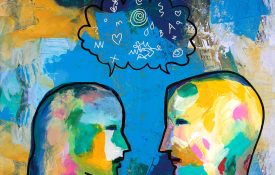-

How an Active Imagination Can Justify Moral Inconsistencies
Teaching: A classroom activity helps students understand how people stray from their moral values and beliefs.
-

What Students Need to Know About Names: When the Need to Belong Backfires
Teaching: A scenario exercise can help students understand wind the psychological costs that people from marginalized groups suffer when they change their names to fit in.
-

Reflecting on More than a Decade of Teaching Current Directions: Some Greatest Hits and Thanks to David Myers
Nathan DeWall and other Teaching Current Directions contributors express their gratitude for social psychologist David G. Myers and his lifelong commitment to psychological science.
-
What we learned from teaching a course on the science of happiness
When you deliver a university course that makes students happier, everybody wants to know what the secret is. What are your tips? What are your top ten recommendations? These are the most asked questions, as
-

There’s No Ghost in the Machine: How AI Changes Our Views of Ourselves
Teaching: Try these classroom activities to clarify the myths and realities of artificial-intelligence capabilities.
-

Empirical Evidence Is My Love Language
Teaching: The idea of love languages has become hugely popular and the term itself is pervasive in popular culture. This article provides teaching materials to encourage students to think critically about psychological science and popular self-help advice.

